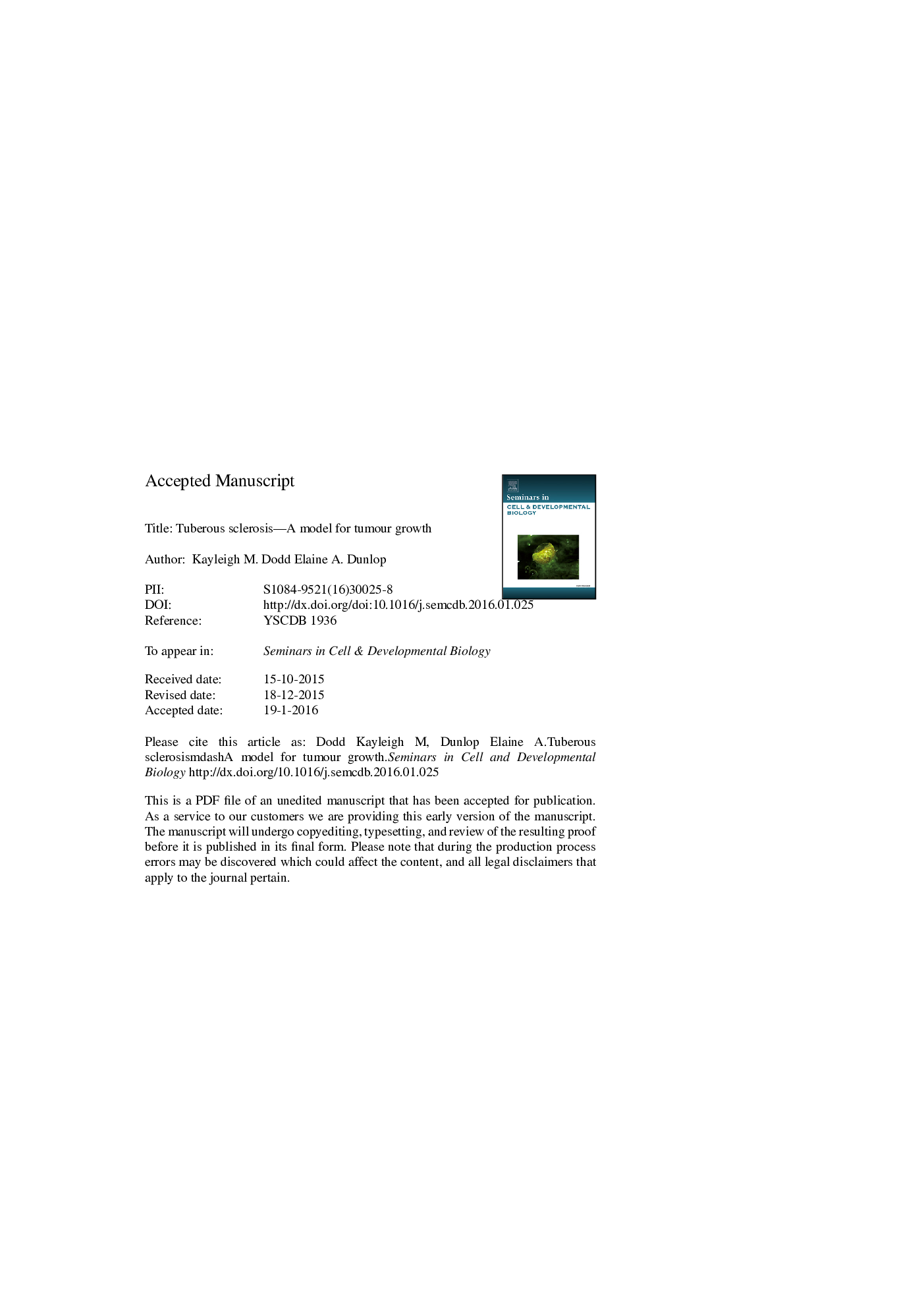| Article ID | Journal | Published Year | Pages | File Type |
|---|---|---|---|---|
| 8480137 | Seminars in Cell & Developmental Biology | 2016 | 25 Pages |
Abstract
Tuberous sclerosis complex (TSC) is a rare genetic disorder where patients develop benign tumours in several organ systems. Central to TSC pathology is hyper-activation of the mammalian target of rapamycin complex 1 (mTORC1) signalling pathway, which is a key controller of cell growth. As a result, TSC model systems are a valuable tool for examining mTORC1-driven cellular processes. The immunosuppressant, rapamycin, is a specific inhibitor of mTORC1 and has shown promise as a therapeutic agent in TSC as well as in malignancy. This review will focus on the cellular processes controlled by mTORC1 and how TSC-deficient cell lines and mouse models have broadened our understanding of the mTORC1 signalling network. It will also discuss how our knowledge of TSC signalling can help us understand sporadic conditions where mTORC1 activity is implicated in disease onset or progression, and the possibility of using rapamycin to treat sporadic disease.
Related Topics
Life Sciences
Biochemistry, Genetics and Molecular Biology
Cell Biology
Authors
Kayleigh M. Dodd, Elaine A. Dunlop,
